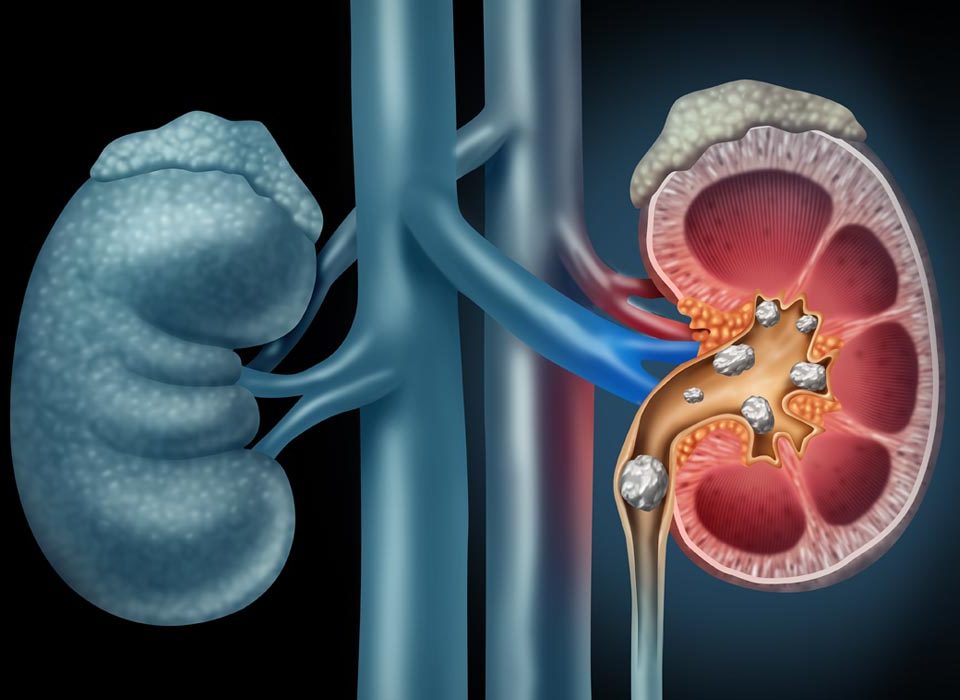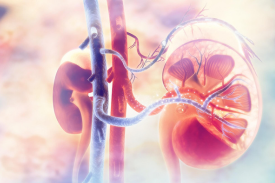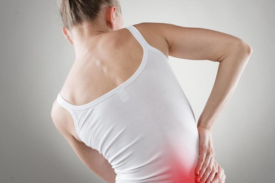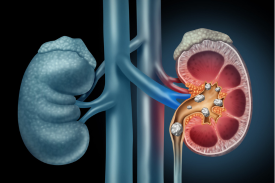Essential Tips: Kidney Stones – Symptoms, Treatment, Causes Prevention
Introduction
Kidney stones can be an incredibly painful and debilitating condition. If you’ve ever experienced the excruciating agony of kidney stones, you know firsthand how important it is to find effective methods for elimination and prevention. In this comprehensive guide, we’ll explore the symptoms, treatment options, causes prevention strategies for kidney stones. We’ll also answer some frequently asked questions and provide essential tips to help you navigate this challenging condition. So, let’s dive in and arm ourselves with the knowledge to tackle kidney stones head-on!
Before we delve into the nitty-gritty of kidney stones, it’s worth mentioning the Pune Institute of Nepro Urology. Renowned for its expertise in urological care, this prestigious institute in Pune, India, offers advanced treatment options and compassionate care for patients dealing with kidney stones. If you’re seeking top-notch medical attention for kidney stones, the Pune Institute of Nepro Urology should be at the top of your list.
What Are Kidney Stones?
Kidney stones, also known as renal calculi, are hard mineral and salt deposits that form in the kidneys. They can vary in size, ranging from as small as a grain of sand to as large as a golf ball. These stones can be composed of various substances, including calcium, oxalate, uric acid, and cystine struvite.
Location of Kidney Stones
Kidney stones can develop in any part of the urinary tract system, which includes the kidneys, ureters, bladder urethra. However, they primarily form in the kidneys. The kidneys are bean-shaped organs on either side of the spine, just below the rib cage. They filter waste products and excess fluids from the blood to produce urine. When the concentration of certain substances in the urine becomes too high, these substances can crystallize and form kidney stones within the kidneys. If the stones travel down the urinary tract and become lodged, they can cause intense pain and discomfort.
Understanding the location and composition of kidney stones is essential for accurate diagnosis and appropriate treatment. If you suspect you may have kidney stones, it is important to consult with a healthcare professional for an evaluation and personalized guidance.
Symptoms of Kidney Stones
Kidney stones often exhibit specific symptoms that can help identify their presence. These symptoms may include:
- Sharp and Intense Pain: The presence of kidney stones can cause severe pain in the side or back, below the ribs. The pain may radiate to the lower abdomen and groin.
- Blood in Urine: Kidney stones can cause blood to appear in the urine. The urine may appear pink, red, or brown.
- Frequent Urination: Individuals with kidney stones may experience an increased frequency of urination. This can be accompanied by a sense of urgency.
- Cloudy or Foul-Smelling Urine: Kidney stones can lead to changes in urine appearance and odor. Cloudy urine with a strong smell may indicate their presence.
- Nausea and Vomiting: Some individuals with kidney stones may experience feelings of nausea and may even vomit due to intense pain.
Treatment Options for Kidney Stones
When it comes to treating kidney stones, the approach depends on various factors, including the size, location composition of the stones. The Pune Institute of Nepro Urology recommends the following treatment options:
- Observation and Pain Management
If the kidney stones are small and likely to pass on their own, your doctor may recommend observation and pain management. This approach involves drinking plenty of fluids and taking pain medications waiting for the stone to pass naturally.
- Medications
Certain medications can help facilitate the passage of kidney stones or alleviate related symptoms. Your doctor may prescribe pain relievers, alpha-blockers or medications to control underlying conditions that contribute to stone formation.
- Extracorporeal Shock Wave Lithotripsy (ESWL)
ESWL is a non-invasive procedure that uses shock waves to break kidney stones into smaller fragments. These smaller pieces can then pass out of the body through urine.
- Ureteroscopy
Ureteroscopy involves using a thin tube (ureteroscope) to locate and remove or break down kidney stones. This procedure is typically performed under anesthesia.
- Percutaneous Nephrolithotomy (PCNL)
PCNL is a minimally invasive procedure used to remove large kidney stones. It involves making a small incision in the back and using a nephroscope to break down and remove the stones.
Causes of Kidney Stones
Understanding the causes of kidney stones can help you take preventive measures. Several factors contribute to their formation, including:
- Dehydration: Insufficient fluid intake can lead to concentrated urine, increasing the risk of stone formation.
- Dietary Factors: Consuming a diet high in sodium, oxalate animal protein can contribute to the development of kidney stones.
- Family History: A family history of kidney stones increases an individual’s susceptibility to developing them.
- Medical Conditions: Certain medical conditions, such as urinary tract infections, cystic kidney diseases hyperparathyroidism, can increase the likelihood of kidney stone formation.
- Obesity: Being overweight or obese can raise the risk of developing kidney stones.
- Medications: Certain medications, including diuretics and antacids containing calcium, can contribute to stone formation.
Prevention of Kidney Stones
Taking proactive measures to prevent kidney stones is essential. By following these preventive tips, you can reduce your risk:
- Stay Hydrated
Maintaining adequate hydration is crucial for preventing kidney stones. Aim to drink at least 8-10 glasses of water daily to ensure proper urine dilution.
- Follow a Balanced Diet
Adopt a diet that is low in sodium, oxalate animal protein. Include a variety of fruits, vegetables whole grains in your meals. Limit the consumption of processed foods and sugary beverages.
- Moderation is Key
While certain foods may contribute to stone formation, it’s not necessary to eliminate them from your diet. Instead, practice moderation and be mindful of portion sizes.
- Maintain a Healthy Weight
If you are overweight or obese, strive to achieve and maintain a healthy weight. Losing excess pounds can help reduce the risk of kidney stones.
- Be Cautious with Supplements
Some dietary supplements, such as calcium and vitamin C, can increase the risk of stone formation. Consult with a healthcare professional before taking any supplements.
- Stay Active
Engage in regular physical activity to promote overall health. Exercise can also help prevent the formation of kidney stones by aiding in weight management.
Summary
Kidney stones can be incredibly painful and disruptive, but armed with essential tips and knowledge, you can take proactive steps to eliminate and prevent them. By making dietary modifications, incorporating lifestyle changes seeking medical attention when necessary, you can minimize the risk of kidney stone formation and maintain optimal kidney health. Remember, prevention is key, so take care of your kidneys and live a stone-free life!
FAQs (Frequently Asked Questions)
Q1: Could you describe your firsthand encounter with kidney stones?
A1: Experiencing kidney stones firsthand can be an excruciating ordeal. The intense pain radiates from the lower back to the abdomen, leaving the individual writhing in agony.
Q2: What are the most effective methods to eliminate kidney stones?
A2: Effective methods for kidney stone elimination include medications, extracorporeal shock wave lithotripsy (ESWL), ureteroscopy, percutaneous nephrolithotomy (PCNL), in rare cases, open surgery.
Q3: How would you characterize the intensity of kidney stone pain? What factors contribute to the development of these stones?
A3: Kidney stone pain is described as severe and comes in waves. Factors contributing to stone formation include dehydration, dietary factors, family history, certain medical conditions, obesity lack of physical activity.
Q4: What changes in one’s diet can help prevent kidney stone formation?
A4: Dietary changes to prevent kidney stone formation include staying hydrated, reducing sodium intake, moderating oxalate-rich foods, ensuring sufficient calcium, and moderating animal protein including citrus fruits in the diet.
Q5: What lifestyle changes can mitigate the risk of developing kidney stones besides dietary modifications?
A5: Lifestyle changes that can reduce the risk of kidney stone formation include maintaining a healthy weight, staying active, not delaying urination, managing stress, quitting smoking monitoring medications.
Q6: When should I seek medical attention for kidney stones?
A6: If you experience severe pain, blood in the urine, persistent vomiting, fever or inability to pass urine, seek immediate medical attention as these may indicate a serious condition or complications related to kidney stones.




